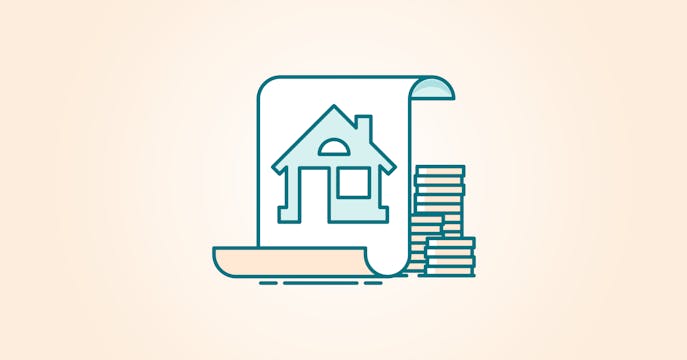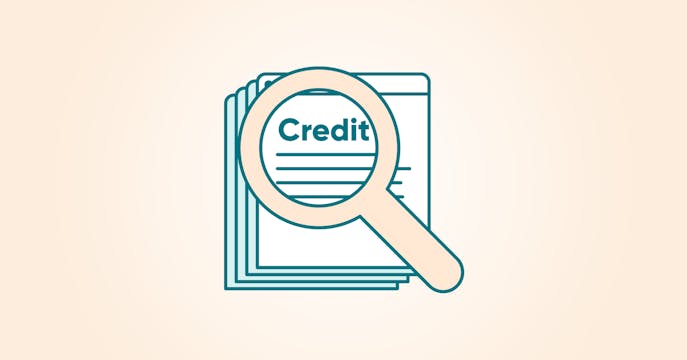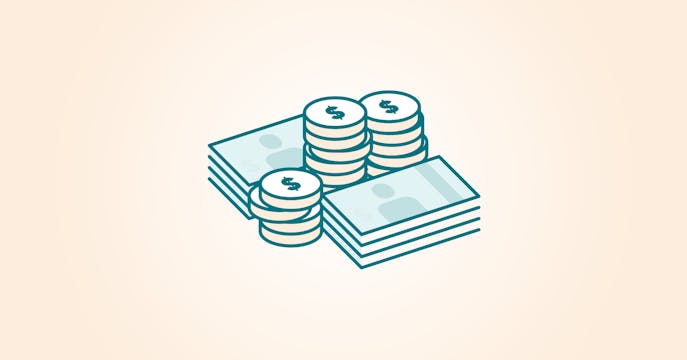Is your debt adding complexity to your mortgage approval, even though you have good credit? If you need to consolidate debt, combine several mortgages, or need a short-term fix to see you through a temporary trouble spot, we may be able to help. Read more here.
Lowest Mortgage Rate in Canada. Starting from 2.49%
How does different debt affect your approval?
Dream of owning a home, or a different home? Your debt is a big part of the (mortgage) picture that you need to consider. Here's how lenders see your debt when you want to buy or refinance a home or property in Canada.
Your debt isn't all weighed equally in the eyes of a lender.
Do you have debt? You're not alone. According to recent surveys from Canada's two credit bureaus, Equifax Canada and TransUnion, consumer debt rose to a record $2.5T in the third quarter of 2024:
- Overall credit card debt rose 9.4% year-over-year
- The number of consumers with a HELOC balance of over $50K increased by about 8%
- Auto-loan debt increased by over 14%
Did you know that certain types of debt can weigh heavier on your mortgage pre-approval?
While lenders like to see a diverse credit history, not all your debt is viewed the same way. Here's a look at how your debt can impact your mortgage finances.
Well-managed debt can help you get a mortgage — and a better rate.
Having a good credit history and managing your debt well can strengthen your mortgage application with a lender, helping you get into your first home, qualify for a higher home-price amount, or get a lower interest rate.
Here's how different kinds of debt can affect your approval.
Lenders will treat a type of debt in one of two ways:
- They'll either take the entire balance (which they calculate into 'monthly' payments at their own percentages) or
- They'll take the actual monthly payment hit on your cash flow.
Plus, for your bottom line, some types are easier to budget and pay down than others — the comparative weight of which could help keep your debt service ratios down and credit score up.
Federal Debt
Canada Revenue Agency (CRA). Entire balance, paid off asap. This type of debt is an instant no-go. If you owe back taxes or are in arrears, you'll be asked to clear this debt before a lender will consider your pre-approval.
Credit Card, Line of Credit Debt
Revolving, Unsecured. Entire balance. For this type of debt, a lender typically looks at the entire balance to calculate an amount you should be paying every month to clear it off, regardless of how much you actually pay down per month. The higher the balance, the quicker it adds up in lender calculations and the more it works against your mortgage-borrowing potential.
- Lenders want to see regular payments on this type of debt or occasional clearing of your balance, especially if you carry larger balances from month to month (spending more than 75% of your limit may result in over-limit fees)
- Canadian credit bureaus recommend maintaining a credit utilization ratio below 30% (of your available credit limits) across all revolving credit accounts to support a healthy credit score.
- The 'minimum' amount is just that and will work against your credit score if you continue to pay only this amount.
- Even with consistent payments, higher balances will still factor into your credit utilization rate and debt service ratios — though a lender may consider the consistency in your overall credit picture.
- With a Line of Credit (LOC), some lenders may base their calculations on the entire limit, regardless of balance.
Mortgage Debt
Secured. Monthly-payment amount. A mortgage is a type of instalment debt, but usually much larger and therefore paid back over several more years (25 years is standard). Lenders will use your potential monthly payment based on your affordability numbers or your actual payment if you already have a mortgage.
- A mortgage is likely the largest financial commitment you'll have, so it likely takes a larger portion of your monthly income. But because it's already spread out over many years, it may factor less than carrying high balances in other debt types (such as credit cards).
- Carrying more than one mortgage is possible if you have the income or equity to qualify (for example, if you have an investment property or second home mortgage).
Instalment Debt
Secured. Monthly-payment amount. A vehicle loan is an example of this debt type. The fixed payments (typically set for 1 - 8 years) can be easier to budget around than revolving credit (where monthly repayment can climb in a short period of time). Lenders will calculate your debt-service ratios using your fixed payment amounts rather than factoring in the entire loan balance.
- Instalment loans usually take less time to pay off compared to mortgage debt, but they're still a long-term commitment (think monthly cash flow!).
- When adding this type of debt, allow room enough for other expenses or debt that may come along.
- Because instalment debt payments are usually the same every month, they can be easier to manage (compared to revolving credit).
HELOC Debt
Revolving, Secured. Entire balance. Different than a Line of Credit (LOC), which is unsecured and usually carries a higher interest rate — many people use a Home Equity Line of Credit (HELOC) to consolidate higher-interest debt, or for larger expenses, such as home renovations. This type of debt is calculated out like a mortgage, rather than a percentage of the balance.
- A HELOC is secured by your home or property and, therefore, is more flexible and less weighted for your pre-approval than an unsecured LOC.
- But, this type is still 'revolving,' which means the balance can be increased at your discretion and directly affects your debt service ratios.
- Canadian credit bureaus recommend maintaining a credit utilization ratio below 30% (of your available credit limits) across all revolving credit accounts to support a healthy credit score.
Student Loans
Entire balance. If you have pending or active student payments, lenders calculate a portion of the entire balance into your monthly debt load. For the most part, student loans carry lower interest and more flexible payback schedules and are less 'weighted' compared to, say, credit card debt.
Spousal or Child Support Payments
Monthly-payment amount. Lenders factor these payments into your debt service ratio if you're paying out. If you're receiving these payments, a portion is added to your monthly income.
Debt is just that. How well you pay it back can actually help your pre-approval.
Ultimately, how you manage your debt is reflected in your credit score, and directly affects your overall monthly debt service (debt-to-income) ratios, both of which lenders use to qualify you.
No matter what debt you have, being realistic with your income and budget will help you keep up consistent payments for a healthier credit picture. And the longer you can show a good history of paying your debt, the easier it will be to get your preferred lender, or an even better rate, on board.
How lenders treat your debt can be complicated. But we make it easy to understand.
Looking to buy a home? Our amazing True North Mortgage brokers can help you with all your debt questions — in your preferred language — and can quickly process your pre-approval so that you know exactly where you stand and which lender is your best fit.
Curious about your credit report? You can check it out for free with Equifax Canada
Weigh your debt with experts who care.
Regardless of your debt situation, we can help you sort it out and find the best strategy for mortgage pre-approval if you're buying your first home, or if you need to switch lenders at renewal or refinance for extra funds.
For straightforward mortgage needs or complex ones, our unbiased, salaried brokers are here to help with unbeatable service and provide you with the best mortgage experience ever.
Give us a shout, anywhere you are in Canada. You could save over $3,000 on average with your best rate and great advice.
Save cash with your better mortgage.
What do you need? Here's more info

Pre-Qualify in Minutes
Know before you go (house hunting, that is). Get pre-approved fast, hold your best rate.

Credit 101
Take a closer look at how your credit works for getting your mortgage approval.

Your Employment Income and Mortgage Approval
From paycheque to your mortgage approval, here's how lenders view your income.

